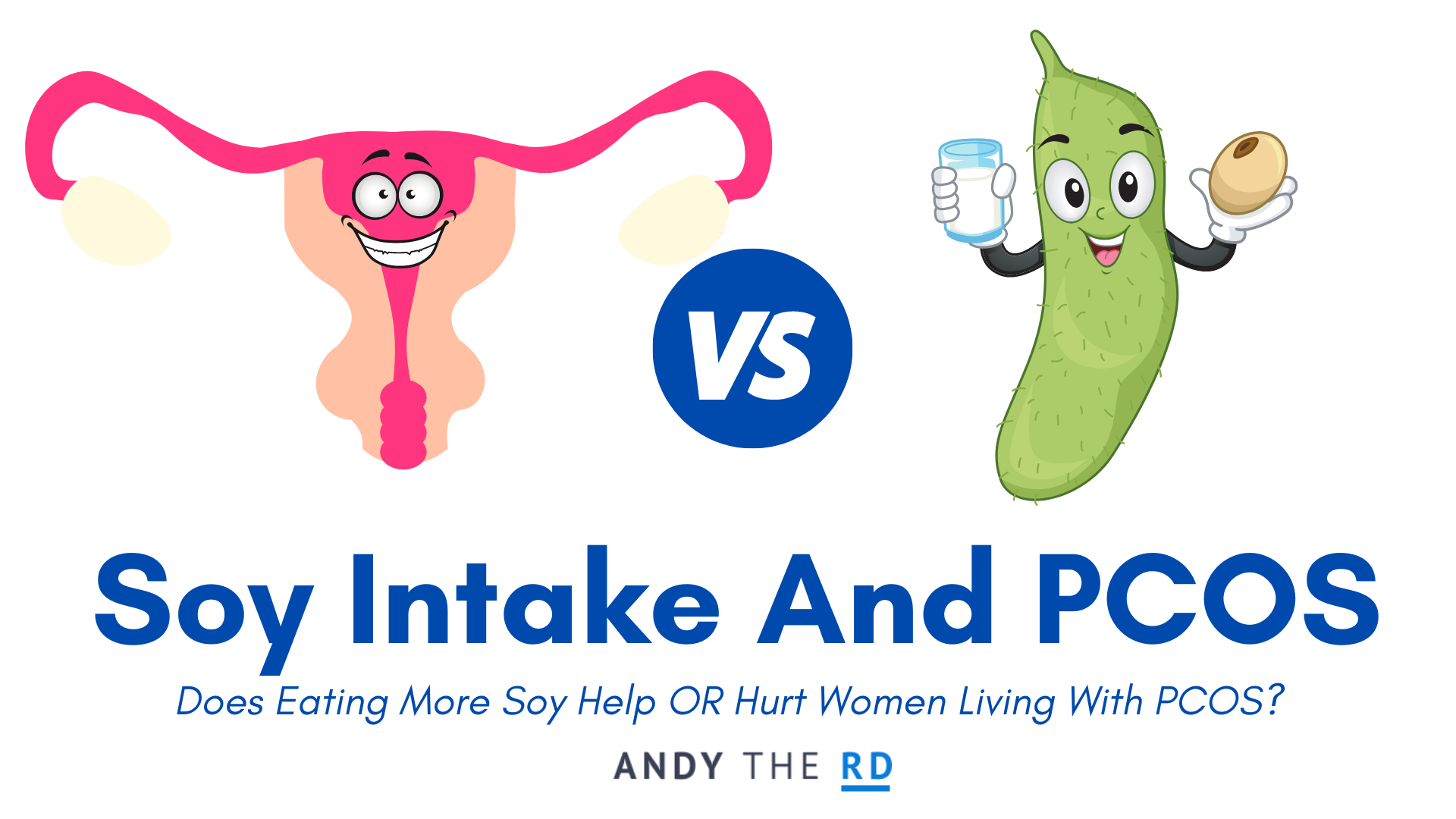Having previously discussed the generally positive effects of soy intake across a broad range of health outcomes, I came to the realization that there was perhaps one very important condition that I left out – PCOS.
PCOS or Polycystic Ovarian Syndrome in full, may affect up to 1 in 10 females of reproductive age and is often characterized by insulin resistance and elevated levels of circulating male-sex hormones known as androgens.
My experience tells me that in many health topics where hormones are highlighted (as in breast cancer for women or general concerns over testosterone in men) soy-based foods tend to be perceived as the enemy.
Certainly my clients living with PCOS more often than not harbour concerns about soy intake.
But is this justified?
The fear generally stems from the fact that soy-based foods contain compounds known as phytoestrogens, which very mildly mimic the hormone estrogen.
How mildly you ask?
Well, isoflavones are the most abundant form of phytoestrogens in the human diet (provided primarily through tempeh, tofu, soy milk, edamame) and they only have 1/200th of the affinity for estrogen receptors that actual human estrogen does.
So they really are weak, weak mimics.
But that doesn’t tell us much about their practical impact on women with PCOS, so let’s see what science has to say about that.
Soy Intake In PCOS – The Experimental Evidence
It’s not always the case in the world of nutrition that you are able to find what are known as randomized controlled trials ( also referred to as RCTs- considered to be a very high standard of scientific evidence) in the topic area you are interested in.
In this instance, however, we are fortunate to have two studies from reputable journals to discuss today.
The first looks at the effect of soy isoflavone supplementation, and the second looks at actual soy intake.
Keep in mind that isolflavones are only one of a number of potentially beneficial components found in soy-based foods, but they generally generate the most attention because of their phytoestrogen classification [ which we just discussed].
RCT #1 – Isoflavone Supplementation Study from The Journal of Clinical Endocrinology & Metabolism 2016
In this particular study, the researchers looked at the effect of soy isoflavone supplementation over a 12 week period in women with PCOS.
The amount of isoflavone they used was 50 mg, which is the amount comparable to what you’d get from eating around a 100 gram serving of tofu or tempeh.
They found that, compared to women with PCOS who did not supplement with isoflavones, those who did showed improvement in a number of meaningful categories:
- Lower circulating insulin levels
- Lower LDL and Triglyceride levels
- Improved insulin resistance and insulin sensitivity
- Reduced FAI ( free androgen index – which estimates the amount of physiologically active testosterone in your system)
RCT #2 – Soy Intake Study from The Journal Of Human Nutrition & Dietetics 2018
This experimental study was of particular interest because it compared two groups of women with PCOS with varying levels of of animal vs soy protein intake.
If you’ve been a follower of my work, or even a client of mine, you know that I tout soy’s primary value as being an economical and enjoyable vehicle to help people alter their intake of animal to plant-based protein.
So how did the women with more soy and less animal protein compare to those with less soy and more animal protein?
Over an 8 week period, the women who consumed more soy showed:
- Decreased fasting glucose levels
- Decreased fasting insulin & insulin resistance
- Improved insulin sensitivity
- Decreased Free Androgen Index
Soy, Polyphenols & PCOS
Another very interesting aspect of soy-based foods is their incredibly high polyphenol content.
Polyphenols are a family of plant-based compounds with a wide range of anti-inflammatory and antioxidant capacities.
As I explored in a recent article, polyphenols may also serve as prebiotics in your digestive tract.
This essentially means they act as “food” for your healthy gut bacteria and help keep these beneficial bacteria in good supply.
Why is this relevant to PCOS? Well, researchers are becoming increasingly intrigued by a potential connection between gut bacteria and PCOS.
For those curious about this topic, it was explored further in a recently published paper out of the Nutrients journal.
I plan to explore this connection more thoroughly in a future article, so stay tuned.
Final Thoughts
It appears that soy-based foods may play a meaningful and positive role in the dietary management of PCOS.
Certainly the evidence that I’ve encountered points to a net positive, rather than a net negative, impact when introducing soy-based foods & compounds into the dietary pattern of women living with PCOS.
It would be a shame to avoid soy over undue fear because it does appear that incorporating soy is one of a number of dietary strategies that a woman with PCOS might employ to improve their health.
If you are looking to cut through the BS and utilize nutrition science to improve your health, I can help.
Reach out today to discuss working together 1-on-1.
Until next time,
Andy De Santis RD MPH



